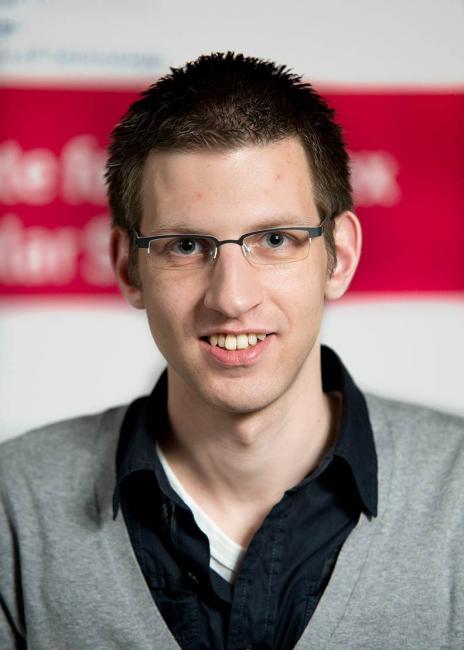Hello there Joep Evers

...where do you work and what do you work with?
I currently work at ASML in The Netherlands. ASML is the world's largest manufacturer of photolithography systems; these are the machines that are used to produce computer chips. My work is in the metrology department, where measurement data is analysed and used to calibrate the machine or to detect defects.
My talk during the Sonja Kovalevsky days is however not related to my current job, but it was part of my PhD research (2011-2015).
What have you studied?
I studied Mathematics (Industrial and Applied Mathematics, bachelor's and master's level) in the Netherlands, at Eindhoven University of Technology. I also obtained my PhD degree there in 2015.
Why is it that math is so fun?
Math provides tools to solve real-world problems. A mathematician's first task is to extract the essence of a problem and describe it in mathematical terms. Apparently unrelated problems may lead to similar mathematical formulations. This universality makes mathematics so powerful and makes mathematical research so rewarding: with a certain set of skills you can tackle problems in a variety of applications.
For some situations, we think at first sight that it is impossible to capture them in rigid mathematical formulas. An example is the movement of people in a crowd (see the topic of my talk below), that seems to be governed by unpredictable factors like selfishness and stubbornness. Fascinatingly enough, it turns out that we can still draw meaningful conclusions using mathematics.
In what way do you work with math within you profession?
I work in the department that processes measurement data that is collected in the machine. We try to recognize patterns in this data, and draw conclusions from which patterns occur and how strongly they are present. My mathematical tools are for instance fitting (polynomial) shapes on data and some statistics.
What in your career has been challenging?
I recently started my job at ASML. Before, I worked at universities as a researcher. I am now getting used to working in a company with a more practical, pragmatic mindset. I have to learn a lot about the physical context of the problems I am working on, so that I can combine physical intuition with my mathematical skills.
What topic are you going to talk about on the Sonja Kovalevsky days?
I will speak about mathematical models for the movement of social individuals in groups, e.g. birds, fish or people. My aim is to show that simple rules of motion can lead to self-organization.

